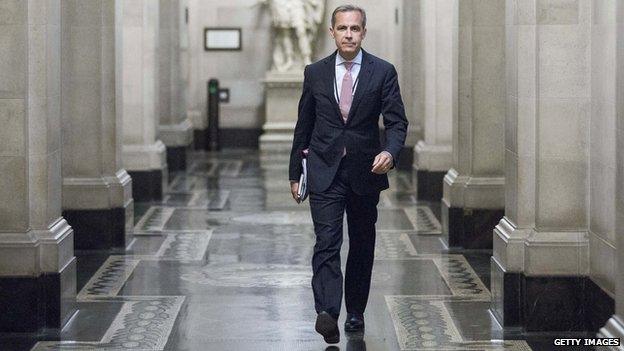UK interest rates held at record low of 0.5%
- Published

Bank of England chief Mark Carney has said that any future rate rises will be small and gradual
The Bank of England has held UK interest rates at a record low of 0.5% for another month.
The size of the Bank's economic stimulus programme - quantitative easing - was also unchanged at £375bn.
Rates have been at 0.5% for five years, but as the economy recovers there are expectations of a rise early next year.
Last month, minutes of the Bank's interest rate meeting in early August showed that two policymakers voted for a rise.
This was the first time in three years that rate-setters on the Bank's nine-member Monetary Policy Committee (MPC) had done so.
Minutes of the latest MPC meeting are due to be published next week.
Debate over the timing of any rate rise has intensified amid publication of more positive economic and consumer data.
However, Bank governor Mark Carney has made clear that any rate rises would be small and gradual.
And there are still many economists who feel that the slow growth in wages means that households and businesses would suffer if rates increase too soon.
Analysts say a 0.25% rate rise translates into an annual increase of £250 on a typical mortgage. However, pressure to raise rates eased last month with official figures showing that inflation fell to 1.6% in July, while wages fell 0.2%.
Nevertheless, some economists still believe a rise could come this year, partly because an increase next year may be too close to the general election in May.
"There is typically a preference, if possible, to avoid monetary policy becoming a political football in an election campaign." said Investec chief economist Philip Shaw